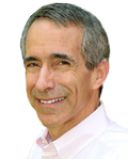
Health
Lousy Health Insurance? Three Questions That Can Save Your Health
As health care disappears, you'll need to tend yourself.
Posted December 2, 2010
Surviving Health Care 

Surviving Health Care
Health care in the US is crazily dysfunctional, frighteningly expensive, and worsening. To survive, you're going to have to do what you can for yourself. Fortunately, there's a lot you can do.
Asian American women in Suffolk County, New York have an expected lifespan of 95.6 years. A much larger population of the same folk in Bergen County, New Jersey can expect 91.1 years of life.
It's all about how you live - much of it under your control.
If Americans use their bodies right they might add 10 years of more productive life through very simple means. Can you do that? Try answering the following questions.
Three Questions That Can Save Your Health
1. What did human beings evolve to do?
Creationists may hate evolution but it remains the central idea of biology since the nineteenth century. Despite their beliefs, their immune system would not keep them alive unless it constantly mutated and evolved to face the endless threat of near infinite numbers of viruses, bacteria, fungi and prions, plus the 100,000 chemicals added to the environment since WWII. So what have are our genomes, 8% of which come from retroviruses, built us to do?
Here's a simple answer - humans are highly social omnivores whose thirty foot gut is especially adapted for very fibrous plantstuffs and whose bodies are wonderfully evolved walking machines.
In other words, 21st century American lifestyles are almost devilishly designed to maximally foul up your health - unless you know how to fix things.
2. How does your body really work?
Your body rebuilds itself quickly and powerfully, almost explosively, learning till you die to make that rebuild work better.
Aging and genetics cannot be denied, but the business end of your biology, proteins, generally last for just hours. Most of you is built, deconstructed, recycled and replaced, within weeks.
You're much younger than you think - and much more capable of shifting that rebuild and renewal in ways you control.
Most people never even consider this astonishing process in part because we often think of ourselves in terms of the machines we use. Sixty years ago, people compared their bodies with factories and cars; now we use computers as our biological metaphor, so we're made up of "software" and "hardware."
Make no mistake - the hardware gets replaced really fast, and the software changes all the time - even your memories change every time you retrieve them.
Yet your car and computer are no match for the biological miracles you provide - unless you can get your car engine or computer hard drive to mostly recreate themselves in three days. That's what your heart accomplishes.
Give yourself credit - you're vastly more interesting than any machine, and vastly more able to rebuild yourself. You're not a machine - you're a living being. Living beings keep learning till they die. Which automatically leads to Question 3:
3. What can I do, minute by minute and hour by hour, to rebuild my body and brain the way I want?
Since most doctors and many biologists still see the body as machine not enough research has been done on how we can remake ourselves healthily and powerfully. Fortunately what is known can make a huge difference in your life and lifespan. Remember, medieval builders erected mind-boggling cathedrals without the benefits of tensor analysis let alone Newtonian physics. Here are some basic factors you control:
1. Physical activity - if the recent Society of Gerontology meetings demonstrated anything, it's that physical exercise is an amazing anti-aging policy - even when animals are biologically engineered to age rapidly. The magic number seems to be 60 minutes of physical activity per day. Gyms are not necessary, just ordinary movement (we are walking machines, you know).
2. Food - Humans evolved under conditions of intermittent, sometimes near-constant starvation. We almost disappeared as a species about 75,000 years ago. Moreover, our metabolism is set to up to make us lust after sugar, fat, and salt. In this country we manage to overdose on all of them - our use of salt alone is perhaps fifty times what we need. We'll live a lot longer if we eat the way we're built - gorging on bulky plantstuffs that convince our brains we've had enough to eat, while also gaining micronutrients from an unbelievable line up of edible whole foods.
3. Rest. Rest is regeneration, which may be why both our work life and the Internet are working hard to abolish it. Sleep less and you'll weigh more, while also increasing your chances of hypertension, stroke, heart disease, depression, poor learning and memory, plus a bunch of cancers.
And that's just looking at passive rest. Active rest, techniques consciously designed to rapidly rebuild and renourish mind and body, have not yet even entered public discourse. Once they do creativity, productivity and pleasure should rise.
4. Body clocks - A 24-7 society fits machines, not people, or any terrestrial life form you care to observe. Shift workers die young for a very good reason - time rules life. Inner clocks time everything, including your ability to comprehend this sentence. The Internet, electric lights, and a new industrial paradigm that makes us think of ourselves as machines can derail survival and healthy living before you can send this as a text message.
5. Social engagement and relationships. Humans are social animals. We not only swarm around each other, but social support is a very big factor in keeping us alive - as the Alameda County showed in 1979, as have hundreds of studies since. Besides, social support is fun. Our psychological health begins through living with others.
6. Moving for its own sake. Sitting is a risk factor for death. Even marathon runners die more quickly if they sit more than 6 hours a day. We're walking machines, not couch potatoes - that's our nature.
The Nature of Human Nature
We're perfectly capable of using our cars, computers, vacuums and toasters the way they're designed - so what not ourselves? If you can answer the three questions you can look forward to a potentially greater lifespan and more creativity and flow in your life - the kinds of peak experiences that we all like to remember.
So think seriously about what your body is designed to do. Your body will thank you, and you may then experience many pleasant surprises - socially, economically, psychologically and physically - for a lot longer than you expect.



